How Does Web Scraping for Travel and Hospitality Data Help Travel Industry?
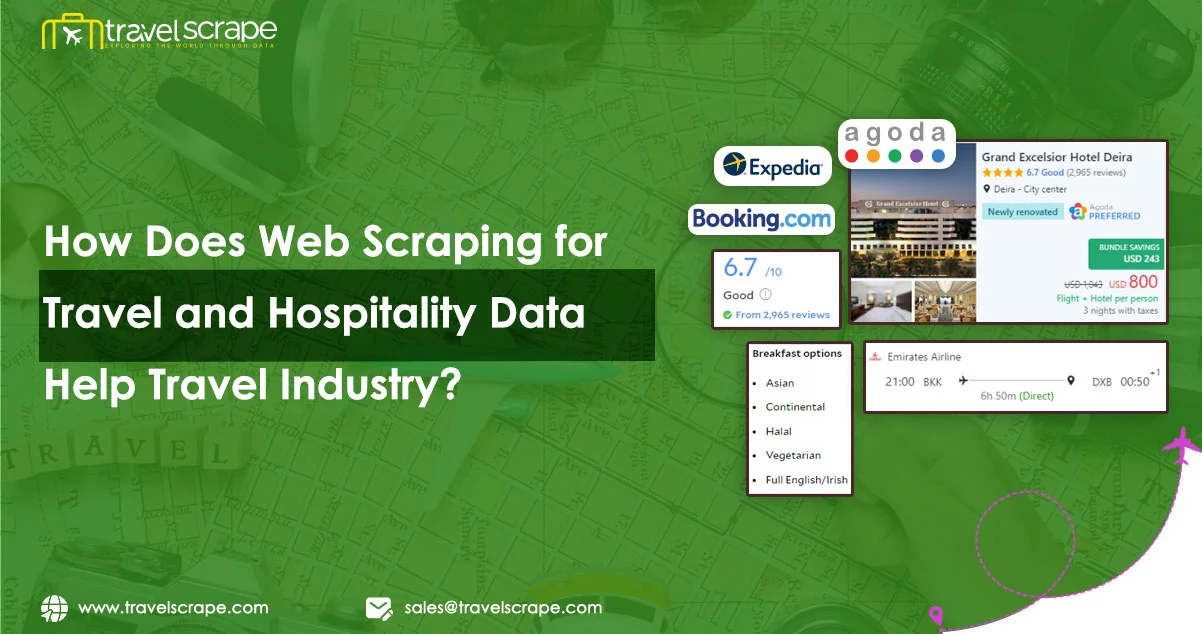
Introduction
In the competitive world of travel and hospitality, staying ahead of market trends, understanding customer preferences, and optimizing pricing strategies are crucial for success. One of the most effective ways to achieve these goals is through web scraping for travel and hospitality data. This method provides a powerful data collection solution for travel and hospitality industry, enabling businesses to gather valuable insights and make informed decisions. In this blog, we'll explore how web scraping can help the travel industry, focusing on scraping travel and hospitality data, web scraping for the travel industry, and the benefits of hotel, travel and airline data scraping services.
What is Web Scraping?
Web scraping is the process of using automated tools or scripts to collect data from websites. This method allows businesses to gather large volumes of information quickly and efficiently, which can then be analyzed for various purposes. Web scraping for travel and hospitality data involves extracting information from travel websites, hotel booking platforms, airline ticketing sites, and review platforms. This data can include pricing information, customer reviews, availability, and much more.
Importance of Web Scraping in the Travel Industry
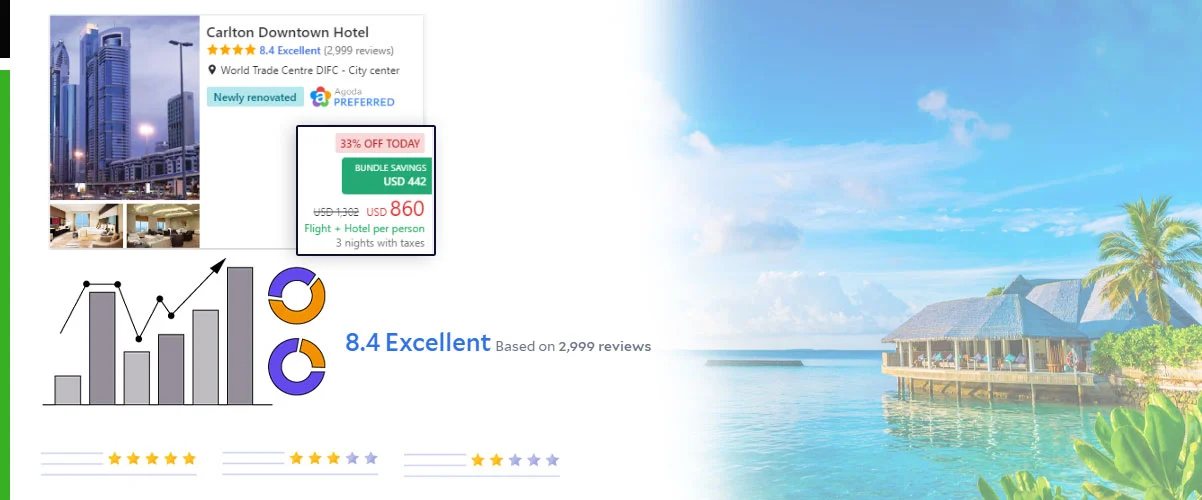
The travel industry is highly dynamic, with prices and availability changing frequently. Having access to real-time data is essential for making informed decisions. Here are some key reasons why web scraping is important in the travel and hospitality industry:
Competitive Pricing: Web scraping allows travel companies to monitor competitors' prices in real-time. This information is crucial for dynamic pricing strategies, ensuring that businesses remain competitive while maximizing revenue.
Market Trends: By scraping data from various sources, businesses can identify emerging trends in travel preferences, popular destinations, and seasonal demand patterns. This helps in tailoring marketing strategies and offerings to meet current market demands.
Customer Insights: Extracting customer reviews and ratings from multiple platforms provides valuable insights into customer satisfaction and preferences. This information can be used to improve services and enhance the overall customer experience.
Availability and Inventory Management: Web scraping can help travel companies keep track of inventory levels, such as hotel room availability or flight seats. This ensures accurate and up-to-date information for customers, reducing the risk of overbooking.
Key Applications of Web Scraping for Travel and Hospitality Data
Competitive Pricing Analysis
One of the most significant benefits of web scraping for the travel industry is competitive pricing analysis. By continuously monitoring competitors' prices, travel companies can adjust their pricing strategies to stay competitive. For instance, a hotel can use web scraping to track room rates of nearby hotels and adjust its prices accordingly to attract more guests while maximizing revenue.
Market Trend Analysis
Understanding market trends is essential for developing effective marketing strategies. Web scraping allows travel companies to gather data on popular destinations, travel packages, and customer preferences. By analyzing this data, businesses can identify trends such as increasing demand for eco-friendly travel options or a rise in popularity of certain destinations. This information helps in crafting targeted marketing campaigns and developing new products that cater to current market demands.
Customer Sentiment Analysis
Customer reviews and ratings provide valuable insights into customer satisfaction and areas needing improvement. Web scraping can collect reviews from various platforms, such as TripAdvisor, Yelp, and Google Reviews. By analyzing this data, travel companies can identify common issues, understand customer preferences, and enhance their services. For example, if multiple reviews mention poor Wi-Fi connectivity at a hotel, the management can address this issue to improve guest satisfaction.
Inventory and Availability Tracking
Web scraping helps travel companies keep track of inventory levels and availability in real-time. For example, airlines can monitor seat availability on different flights, and hotels can track room occupancy rates. This information is crucial for managing bookings and ensuring that customers have accurate and up-to-date information. Additionally, it helps in optimizing inventory management and reducing the risk of overbooking.
How to Implement Web Scraping for Travel and Hospitality Data?
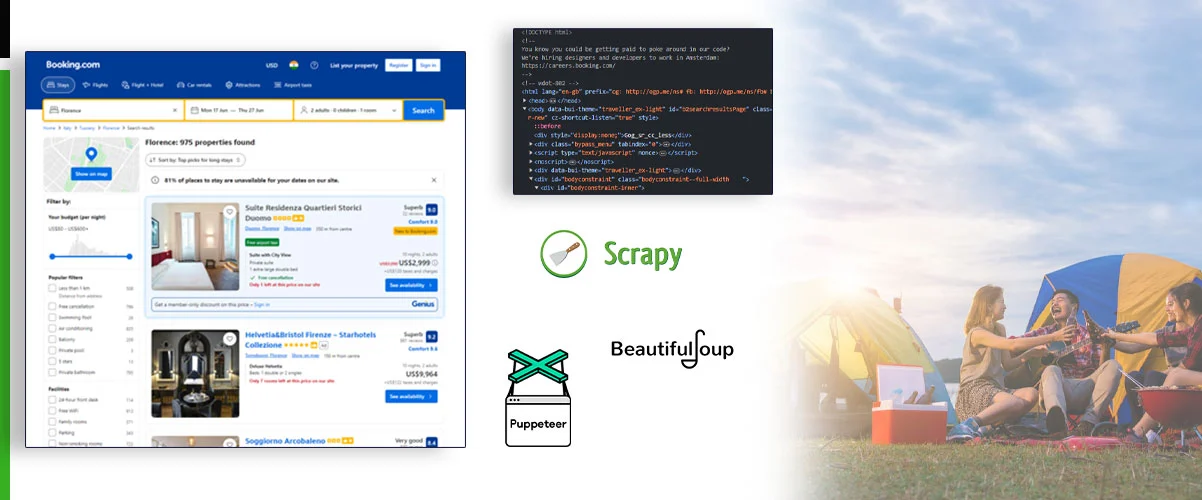
Implementing web scraping for travel and hospitality data involves several steps. Here’s a detailed guide on how to get started:
Identify Target Websites
The first step in web scraping is to identify the websites from which you want to collect data. These could include:
Travel booking websites (e.g., Expedia, Booking.com)
Airline ticketing sites (e.g., Delta, American Airlines)
Hotel booking platforms (e.g., Marriott, Hilton)
Review platforms (e.g., TripAdvisor, Yelp)
Inspect the Website Structure
Use browser developer tools to inspect the structure of the web pages you want to scrape travel and hospitality data. Identify the HTML elements that contain the data you need, such as pricing information, customer reviews, and availability details.
Choose the Right Tools
Several tools and libraries can be used for web scraping. Some popular ones include:
BeautifulSoup: A Python library for parsing HTML and XML documents.
Scrapy: An open-source web crawling framework for Python.
Selenium: A tool for automating web browsers, often used for scraping dynamic content.
Puppeteer: A Node.js library that provides a high-level API to control Chrome or Chromium browsers.
Write the Scraping Script
Using your chosen tool, write a script to extract the desired data. Ensure that your script can handle pagination if the data spans multiple pages. Here’s an example using BeautifulSoup:
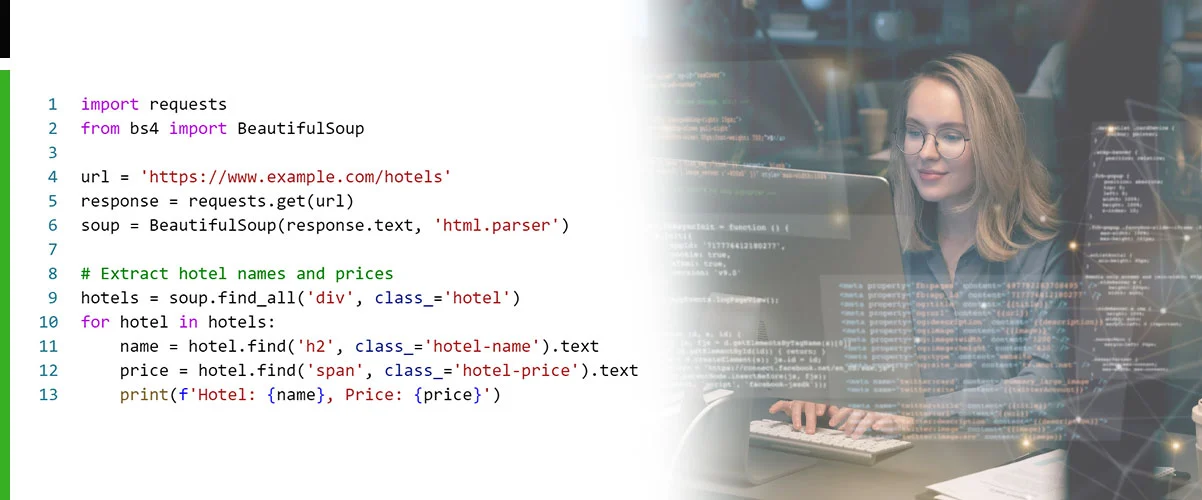
Handle Anti-Scraping Measures
Many websites implement anti-scraping measures, such as CAPTCHAs and IP blocking. Here are some tips to handle these:
Use Proxies: Rotate proxies to avoid IP blocking.
Implement Rate Limiting: Avoid sending too many requests in a short period.
Solve CAPTCHAs: Use services like 2Captcha to solve CAPTCHAs automatically.
Store and Analyze the Data
After scraping, store the data in a structured format, such as a CSV file or a database. Use data analysis tools to derive insights from the collected data. This can involve sentiment analysis, trend analysis, and more.
Benefits of Using Hotel, Travel, and Airline Data Scraping Services
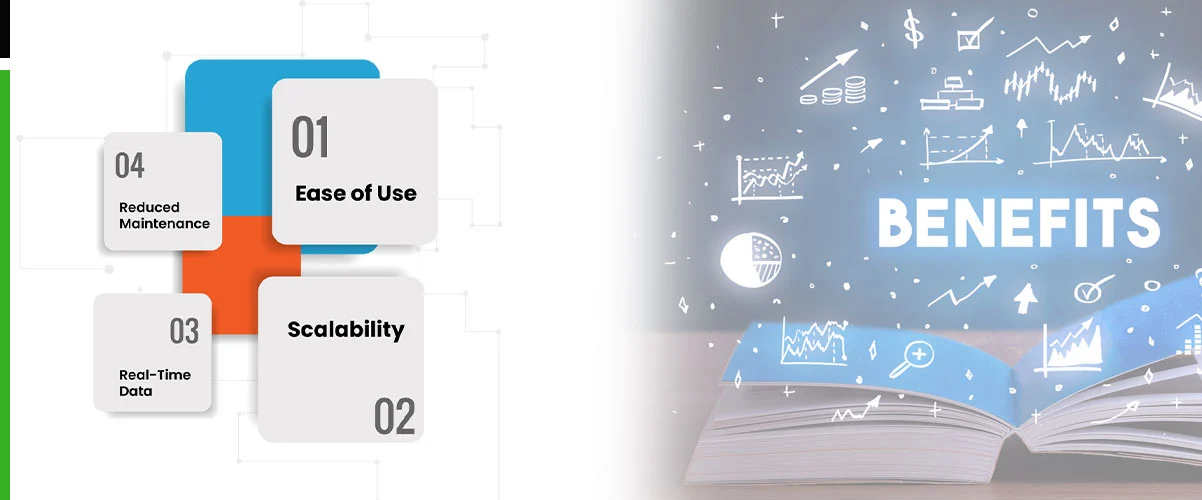
For businesses that prefer not to build their own scraping solutions, using hotel, travel and airline data scraping services offers several benefits:
Ease of Use: These services provide ready-to-use solutions, reducing the need for in-house development.
Scalability: They can handle large volumes of data, making them suitable for businesses of all sizes.
Real-Time Data: Many services offer real-time data, ensuring that businesses always have the latest information.
Reduced Maintenance: Using a third-party service means you don’t have to worry about maintaining and updating your scraping scripts.
Legal and Ethical Considerations
When using web scraping, it’s crucial to adhere to legal and ethical standards. Here are some best practices:
Respect Website Terms of Service: Always check and respect the terms of service of the websites you’re scraping.
Avoid Overloading Servers: Implement rate limiting to avoid overloading servers with too many requests.
Comply with Data Privacy Regulations: Ensure that your data scraping activities comply with regulations such as GDPR.
Future Trends in Web Scraping for the Travel Industry
As technology evolves, the methods and applications of web scraping in the travel industry are likely to expand. Here are some future trends to watch for:
AI and Machine Learning: Integrating AI and machine learning with web scraping can enhance data analysis, making it possible to uncover deeper insights and predictive analytics.
Blockchain Technology: Blockchain can provide more secure and transparent ways to scrape travel and hospitality data.
Advanced Automation: With advancements in automation, web scraping processes will become more efficient, reducing the need for manual intervention.
Enhanced Data Privacy: As data privacy regulations become more stringent, web scraping techniques will need to adapt to ensure compliance while still providing valuable data.
Conclusion
Web scraping is an indispensable tool for the travel and hospitality industry, providing a wealth of data that drives strategic decision-making. To scrape mobile travel app data, monitoring market trends, and leveraging Reviews Scraping APIs, travel firms can remain competitive and responsive to ever-changing market dynamics. It's essential to follow best practices and comply with legal standards to ensure ethical and effective data collection solution for travel and hospitality. As the industry evolves, so will web scraping techniques and applications, offering greater opportunities to travel aggregators for innovation and insights. Embrace the power of Travel Scrape for comprehensive data solutions that drive success in the travel and hospitality industry. Explore our services today and transform your data strategy!